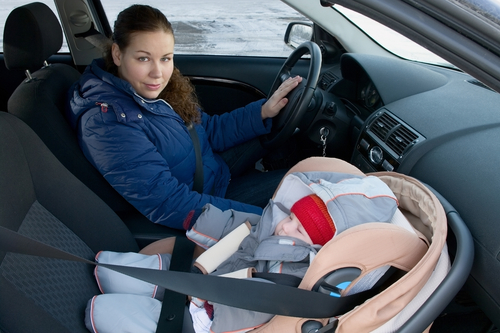Rear-Facing Car Seats Linked to Head Trauma Among Infants
If you’re a parent, you know how difficult it can be to find the safest, most effective car seat for your infant child, to ensure that they’re fully protected in the event of a crash. However, sometimes even the best option available still contains flaws and shortcomings. A recent study has found that rear-facing car seats for infants are linked to head trauma in the event of rear-end crashes.
The study in question was published in the Journal of Traffic Injury Prevention and was conducted by a group of biomechanical safety experts who provide expert testimony in lawsuits. The study looked at what would happen to 6-month-old infants in rear-facing car seats which were restrained in the vehicle using either the car’s built-in seatbelts or the lower-positioned “LATCH” anchors when those cars were struck from the rear. The researchers found that infants in these seats tended to be pitched forward in their seats, throwing their heads against the seat back facing them. The experts described being surprised at the degree to which the infants tended to be injured in these accidents. Additionally, injuries were found to be greater where the “LATCH” anchors, rather than the car’s seatbelts, were used to tie down the seat.
Despite these findings, the experts involved in the study caution that parents should continue to put their infant children in rear-facing car seats. Research shows that infants and young toddlers are five times safer when in rear-facing seats, as these seats provide the head, neck, and spinal support that young children need. Additionally, while these rear-facing seats can result in injury when a car is rear-ended, there is a much greater risk of serious injury for a child in a front-facing seat when the car is involved in a head-on collision, or is hit from the side than there is for a child in a rear-facing seat in a rear-end crash. Instead of changing the type of seat used, the experts involved in the aforementioned study recommended instead that these seats include additional safety features, such as a tether that runs from the car’s floor to the top of the seat, which would keep the seat from flinging forward when struck from the rear.
If you or your child have been hurt in an Alabama car accident and need legal help to fully recover all compensation you’re owed for your injuries, contact the experienced Montgomery personal injury law firm McPhillips Shinbaum LLP, at 334-262-1911.











